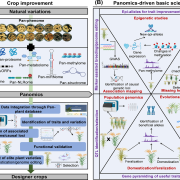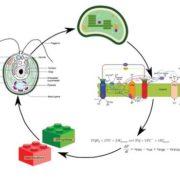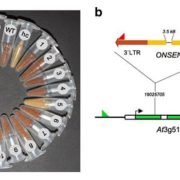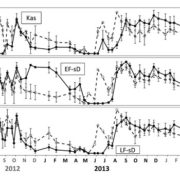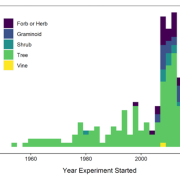Review. Flowering plants in the Anthropocene: A political agenda (Trends Plant Sci)
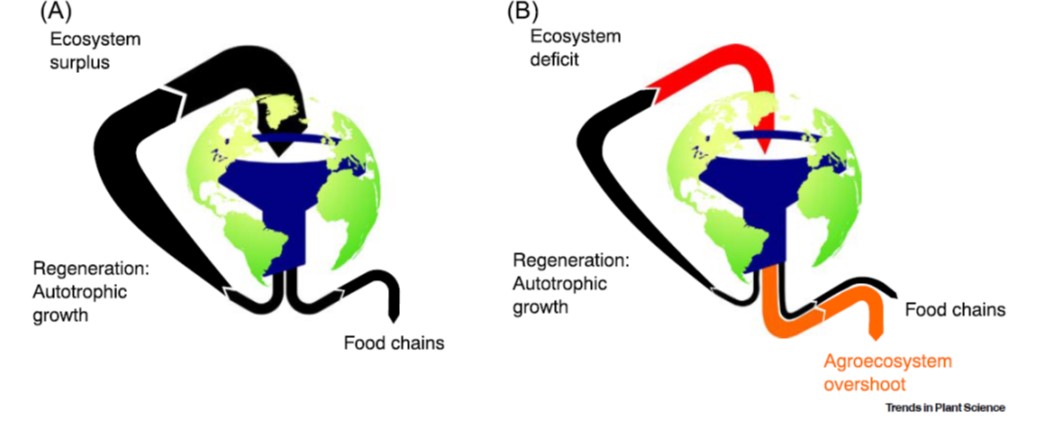 For the past 100 million years, flowering plants have been the main producers of land biomass. They also are indirectly responsible for the origin of agriculture, setting the ball rolling for the onset of the Anthropocene. Negrutiu et al. argue that the accompanying rapid global changes require a reconsideration of the relationship between humans and Earth Systems, and an a integration of planetary boundaries (biosphere integrity, water availability, global pollution, and climate change), the critical zone (interaction zone among biotic phenomena and geological Systems), and planetary health. Agriculture, which the authors describe as a “geopolitical issue,” is identified as the main stressor to these systems. In this review, the authors highlight the importance of angiosperms and the evolutionary innovations that have led to their dominance. They also describe the impacts of human intervention and breeding for “yield at any cost” and the need to consider greater nutritional quality and yield resiliency in future breeding efforts, as well as the adoption of new or underused species for food crops. Finally, the authors anticipate “the advent of a research and policy framework, integrating plant science in all sectors: the economy, local and global governance, and geopolitics.” (Summary by Mary Williams) Trends Plant Sci. 10.1016/j.tplants.2019.12.008
For the past 100 million years, flowering plants have been the main producers of land biomass. They also are indirectly responsible for the origin of agriculture, setting the ball rolling for the onset of the Anthropocene. Negrutiu et al. argue that the accompanying rapid global changes require a reconsideration of the relationship between humans and Earth Systems, and an a integration of planetary boundaries (biosphere integrity, water availability, global pollution, and climate change), the critical zone (interaction zone among biotic phenomena and geological Systems), and planetary health. Agriculture, which the authors describe as a “geopolitical issue,” is identified as the main stressor to these systems. In this review, the authors highlight the importance of angiosperms and the evolutionary innovations that have led to their dominance. They also describe the impacts of human intervention and breeding for “yield at any cost” and the need to consider greater nutritional quality and yield resiliency in future breeding efforts, as well as the adoption of new or underused species for food crops. Finally, the authors anticipate “the advent of a research and policy framework, integrating plant science in all sectors: the economy, local and global governance, and geopolitics.” (Summary by Mary Williams) Trends Plant Sci. 10.1016/j.tplants.2019.12.008


